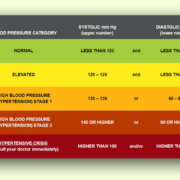How Magnesium Affects Your Brain
If there’s one thing we can usually agree on, it’s that we want to retain as many of our important memories as we can along with the ability to learn new things. That’s why a couple of recent studies on the mineral magnesium caught my attention. Both were published in the past two years by the same research group, but the results of one inspired the second.
Researchers used data from the UK Biobank Study to examine the relationship between magnesium intake, blood pressure, and specific brain volumes. Just over 6,000 male and female subjects ages 40–73 completed the 16-month study. Brain volumes were assessed by MRI and included grey matter and white matter lesions. Dietary intake was assessed at least five times over the course of the study via the Oxford WebQ food frequency questionnaire.
The results demonstrated that high magnesium intake was associated with increased grey matter and lower volume of white matter lesions; there was no relationship between blood pressure and magnesium intake. What is also interesting was that brain volumes were stationary if magnesium intake remained stable, but if magnesium levels were low and rose, there was an increase in grey matter. It’s unclear if reducing magnesium intake would decrease grey matter.
The question is why? Prior research showed that low magnesium intake is related to increased blood pressure, but that wasn’t the case in this study. What caused the positive outcomes? We’ll look at the second study on Saturday.
The Insider conference call is tomorrow night. We’ll expand on the magnesium studies, including what supplement forms may be better than others. I’ll also be answering questions from Insiders. Become an Insider before 8 p.m. tomorrow night and you can join the discussion.
What are you prepared to do today?
Dr. Chet
Reference: European Journal of Nutrition (2023) 62:2039–2051









